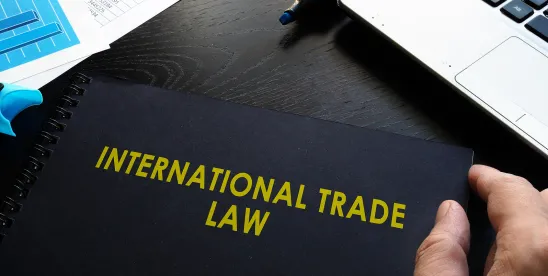On May 28, the U.S. Court of International Trade (“CIT”) blocked President Trump’s tariffs enacted under the International Emergency Economic Powers Act (“IEEPA”).[1] The CIT held that the IEEPA does not authorize presidential tariffs for trafficking or for worldwide/retaliatory purposes.[2] A day later, the U.S. District Court for the District of Columbia issued a preliminary injunction staying the same tariffs on the same grounds.[3]
In response to the adverse CIT ruling, the Trump administration filed an appeal with the U.S. Court of Appeals for the Federal Circuit. The Federal Circuit, which reviews CIT rulings on appeal, granted an immediate injunction preventing the ruling from taking effect while the case proceeds through the appellate process. However, if the CIT’s decision is affirmed, it would eliminate the tariffs imposed on April 2, 2025 as part of the Trump administration’s “Liberation Day” trade initiative.
While the appeal is being decided, this post will explain the specialized role and jurisdiction of the CIT, which many readers may not be familiar with.
The CIT operates as a federal court with exclusive jurisdiction over the nation’s international trade disputes. Seated in New York City, the CIT functions with the same legal authority as a U.S. district court but focuses exclusively on international trade matters. The court’s jurisdiction extends to any civil action brought against the United States, its officers, or agencies involving international trade law.[4] This broad mandate includes cases arising from:
- U.S. Customs and Border Protection decisions regarding import disputes
- Antidumping and Countervailing Duties determinations[5]
- U.S. government actions to recover import-related penalties
The CIT’s evolution reflects the increasing complexity of international trade in the United States. Originally established as the Board of General Appraisers in 1890, it became the U.S. Customs Court in 1926 before taking its current form in 1980 under the Customs Courts Act. This legislation aimed to provide the international trade community, domestic interests, consumer groups, labor organizations, and concerned citizens with an improved judicial forum for reviewing government import-related actions.[6]
The CIT is composed of nine life-tenured judges, appointed by the president and confirmed by the Senate. Importantly, no more than five judges may belong to the same political party, with a goal of ensuring balanced representation in international trade dispute adjudication.[7] The case that struck down President Trump’s IEEPA tariffs was decided by a three-judge panel, appointed by Presidents Reagan, Obama, and Trump.[8]
The CIT’s chief judge typically assigns cases to a single judge, unless a case involves the constitutionality of a congressional act, presidential proclamation, executive order, or an issue with significant implications for customs laws. In such cases, the chief judge may assign a three-judge panel, as here.[9]
The Federal Circuit’s eventual decision will likely establish important precedent for future presidential trade actions. If the CIT’s interpretation of IEEPA is upheld, it could constrain how presidents utilize emergency powers to achieve trade policy objectives.
[1] The International Emergency Economic Powers Act (IEEPA) provides the president authority in some circumstances to regulate a variety of economic transactions following a declaration of national emergency. President Trump declared a national emergency under the IEEPA on April 2, 2025 as part of his administration’s “Liberation Day” trade initiative. See 50 U.S.C. § 1702; see generally https://www.congress.gov/crs-product/R45618; https://www.whitehouse.gov/fact-sheets/2025/04/fact-sheet-president-donald-j-trump-declares-national-emergency-to-increase-our-competitive-edge-protect-our-sovereignty-and-strengthen-our-national-and-economic-security/
[2] V.O.S. Selections, Inc. v. United States, No. 25-66, slip op. at 29, (Ct. Int’l Trade May 28, 2025).
[3] Learning Resources, Inc. v. Trump, No. CV 25-1248 (RC), 2025 WL 1525376 (D.D.C. May 29, 2025).
[4] See 28 U.S.C. §§ 1581-1584.
[5] “Antidumping” and “Countervailing Duties” issues address unfair trade practices that provide relief to U.S. industries and workers that are injured due to imports. This can be from like products sold in the U.S. market at less than fair value (antidumping) or subsidized by a foreign government or public entity (countervailing duties). https://www.congress.gov/bill/114th-congress/house-bill/644/text
[6] https://www.cit.uscourts.gov/about-court
[7] 28 U.S.C. § 251.
[8] https://www.cit.uscourts.gov/judges-united-states-court-international-trade
[9] 28 U.S.C. §§ 253-255.





 />i
/>i
